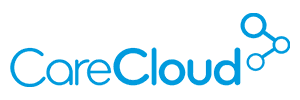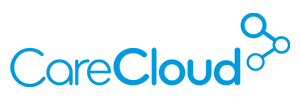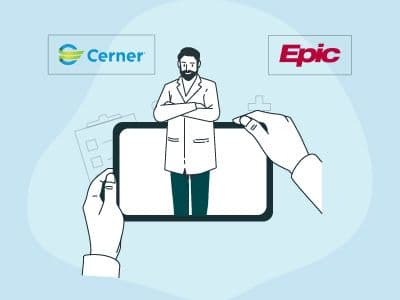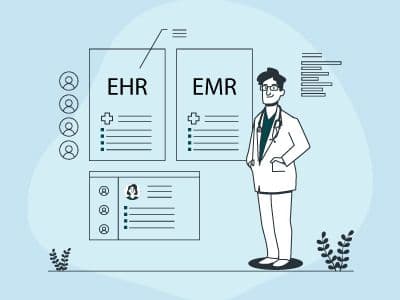Elation Health is a clinic-first EHR software with unified billing solutions. For practices seeking Elation Health alternatives, some top-rated options based on user reviews and provider conversations include athenahealth, Practice Fusion, and NextGen. These Elation Health competitors offer comparable features and comprehensive practice management support.
The Best Elation Health Alternatives
Select up to 2 products
Compare Features
Feature List |  Elation Health | NextGen Office EHR | ModMed EMR |  CareCloud EHR |  RXNT |
|---|---|---|---|---|---|
Appointment Management/Scheduling | |||||
e-Prescriptions | |||||
Lab Integration | |||||
Patient Portal | |||||
Mobile App | |||||
Telemedicine | |||||
Billing And Invoicing | |||||
Claims Management | |||||
Customizable Forms/Reports | |||||
Patient Demographics |
Make decisions with real reviews from real users
With the rapidly changing healthcare landscape, selecting the right electronic health record (EHR) software has become more important than ever. The right EHR can enhance practice efficiency, support regulatory compliance, and improve patient satisfaction. As the EHR market continues to grow, more healthcare providers are seeking platforms that offer greater flexibility, scalability, and integration than their current systems.
Elation Health is a popular cloud-based EHR solution, especially among primary care physicians and small to mid-sized clinics. It’s praised for its easy-to-use charting, patient engagement tools, and seamless interoperability that helps simplify documentation and care coordination. While it works well for many independent practices, some users feel limited by its billing capabilities, lack of specialty-specific features, or challenges in scaling as their practice grows.
Healthcare professionals tend to explore alternatives that provide stronger billing functionality, better support for specialty care, or more robust patient communication tools. In this guide, we’ll highlight the 10 best alternatives to Elation Health, covering key features, pros, cons, and pricing for each option.
Our Best Elation Health Alternative Selections For Your Practice
Software Name | Unique Advantage | Notable Features |
NextGen Office EHR |
|
|
athenaOne |
|
|
Practice Fusion |
|
|
Cerner EMR |
|
|
Praxis EMR |
|
|
ModMed EMR |
|
|
Intergy EHR |
|
|
RXNT |
|
|
CareCloud EHR |
|
|
Sevocity |
|
|
1. NextGen Office EHR
NextGen Office, previously known as MediTouch, is an all-in-one cloud-based EHR and practice management software. It is majorly tailored for small to mid-sized practices offering medical services for primary care, pulmonology, and other specialties. It provides an integrated revenue cycle management (RCM) system, which works smoothly alongside the clinical workflow. This seamless integration helps simplify both billing and documentation, offering a streamlined experience.
While Elation Health is known for its strong clinical documentation features, NextGen Office excels in billing automation and insurance eligibility verification. These features help in reducing claim denials and minimizing administrative delays, making the procedure less prone to errors.
The key features are:
- NextGen Office Ambient Assist
- Scheduling Tools
- Denials Management
- Revenue Cycle Management
What Are The Pros And Cons Of NextGen Office EHR?
Pros | Cons |
|
|
How Much Does NextGen Office EHR Cost?
The vendor offers tailored pricing plans as requested by the practitioners.
2. athenaOne
athenaOne is a comprehensive healthcare solution from athenahealth, offering EHR, medical billing, telehealth, and patient engagement capabilities all in one platform. It’s specifically designed for larger networks and practices aiming for growth. Additionally, powerful analytics tools enable providers to enhance quality metrics and actively engage in value-based care programs. It caters to a vast variety of practices offering specialties such as cardiology, gastroenterology, and others.
athenaOne offers advanced population health tools and clinical intelligence features that Elation Health lacks. The robust outcome tracking aids care teams to easily identify at-risk patients and make informed, data-driven decisions to improve patient outcomes.
Some of its leading features include:
- Patient Engagement Tools
- Patient Health Records
- Care Gap Insights
- RCM Tracking
What Are The Pros And Cons Of athenaOne?
Pros | Cons |
|
|
How Much Does athenaOne Cost?
The vendor provides flexible plans with a percentage of collection pricing model.
3. Practice Fusion
Practice Fusion is a cloud-based EHR known for its simplicity and effective customization abilities. Additionally, it offers tools for medication interaction alerts, which help enhance patient safety by highlighting potential risks. It is known to optimize processes for a vast range of medical practices.
Practice Fusion excels in boasting a wider network of lab integrations, making it easier to streamline diagnostic workflows and improve overall efficiency. Moreover, unlike Elation’s enhanced focus on clinical documentation, Practice Fusions stands out for its robust e-prescribing support.
Following are its essential features:
- Patient Call Center
- On-The-Go Patient Check-Ins
- Lab And Imaging Support
- Automated Appointment Reminders
What Are The Pros And Cons Of Practice Fusion?
Pros | Cons |
|
|
How Much Does Practice Fusion Cost?
It offers pricing plans starting at $199 per provider with a required annual commitment.
Disclaimer: The pricing is subject to change.
4. Cerner EMR
Cerner EMR (acquired by Oracle Health) is one of the most widely used electronic medical record (EMR) systems across the globe. It provides extensive solutions designed for hospitals, health systems, and large outpatient networks. Furthermore, it is renowned for its advanced clinical decision support tools and strong interoperability across various departments.
While Elation Health is primarily designed for independent practices, Cerner is built for scalability. It provides enterprise-level integration options that seamlessly connect departments, specialties, and external networks. Hence, large-scale hospital systems may prefer it over Elation Health.
The key features are as follows:
- Population Health Management
- Care Coordination
- Reporting And Analytics
- Virtual Care Tools
What Are The Pros And Cons Of Cerner EMR?
Pros | Cons |
|
|
How Much Does Cerner EMR Cost?
The vendor offers a unit-based pricing model as per the requirements of the medical care facility.
5. Praxis EMR
Praxis EMR is an innovative, AI-powered EHR system that operates without pre-built templates. Instead, it uses ‘Concept Processing' technology to learn from each physician’s workflow, creating a smarter and faster charting experience. Praised for its minimal click-throughs, this EMR system allows doctors to spend more time interacting with patients. It expands the robust offerings to practices offering specialties such as cardiology, dermatology, and others.
Unlike Elation, Praxis EMR offers AI-driven, template-free charting, enabling a highly personalized workflow. This flexibility makes it an ideal choice for specialists who need more customization rather than being restricted by rigid documentation templates.
Some of its note-worthy functionalities are:
- AI-Powered Concept Processing
- Automated Patient Engagement
- Datum+ Reporting Tool
- PraxDocs Document Manager
What Are The Pros And Cons Of Praxis EMR?
Pros | Cons |
|
|
How Much Does Praxis EMR Cost?
The vendor offers an ownership pricing model starting from $219 per month per provider, applicable for the first provider for 60 months.
Disclaimer: The pricing is subject to change.
6. ModMed EMR
ModMed EMR is a specialty-specific EHR system designed to enhance the operational efficiency of healthcare providers. Its visually modern interface and pre-configured workflows are tailored to multiple specialties like dermatology, ophthalmology, orthopedics, and more. Additionally, its mobile app allows providers to chart simply by just tapping on anatomic diagrams.
While Elation takes a generalist approach, ModMed offers pre-built specialty-specific workflows. This not only helps reduce setup time but also enhances the accuracy of clinical documentation for specialists.
It offers the following abilities:
- ModMed Scribe For Documentation
- Claims Denial Assessment
- Administrative Analytics
- Patient Relationship-Building Tools
What Are The Pros And Cons Of ModMed EMR?
Pros | Cons |
|
|
How Much Does ModMed EMR Cost?
The vendor provides personalized pricing plans that aim to fulfill varied workflow requirements of different specialties.
7. Intergy EHR
Intergy EHR, developed by Greenway Health, is an extensive practice management platform designed for expanding healthcare practices. It offers a high level of customization, including configurable templates, flexible charting tools, and an integrated RCM module. It also focuses on providing built-in tools that support care coordination and value-based care programs. This makes it particularly valuable for practices transitioning to larger networks or adapting to new reimbursement models.
While Elation Health is streamlined for primary care, Intergy offers much greater customization, enabling providers to tailor templates, workflows, and patient encounter forms to meet their specific needs. Additionally, Intergy provides more extensive support for chronic care and population health, making it a better fit for practices focused on long-term patient management and care coordination.
The worth-mentioning features of Intergy EHR are:
- Patient Eligibility Checks
- Patient Health Reminders
- Clinical Template Library
- Prescription Drug Monitoring Program (PDMP)
What Are The Pros And Cons Of Intergy EHR?
Pros | Cons |
|
|
How Much Does Intergy EHR Cost?
It offers tailored quotes upon requirement request by practices.
8. RXNT
RXNT is a comprehensive cloud-based EHR suite designed for small to medium-sized healthcare practices. It integrates multiple functionalities, for instance, e-prescribing, medical billing, patient scheduling, and telehealth into one seamless platform. Moreover, its responsive customer service and frequent software updates make it a highly user-friendly choice in the competitive EHR market. It expands its offerings to specialties, for example, family medicine, psychiatry, physical therapy, etc.
Elation Health users often mention limited billing functionality as a concern. RXNT overcomes this by providing a fully integrated medical billing system, including claims management and automated eligibility checks. Additionally, RXNT includes built-in telehealth capabilities, giving it an advantage for modern practices that want to offer virtual care without relying on third-party integrations.
Some of its vital features include:
- Lab Integrations
- Patient Management
- Intake Forms
- Bill Payment
What Are The Pros And Cons Of RXNT?
Pros | Cons |
|
|
How Much Does RXNT Cost?
It offers the following plans:
- EHR Bundle: $118/month/provider (billed annually)
- PM Bundle: $207/month/provider (billed annually)
- Full Suite: $319/month/provider (billed annually)
- E-Prescribing: $665/year (billed annually per provider)
Disclaimer: The pricing is subject to change.
9. CareCloud EHR
CareCloud EHR is a modern healthcare facility management system that blends exceptional design with advanced functionality. Its usage provides valuable insights into practice performance and smooth integration with practice management tools. Altogether, this makes it a robust one-window solution for medical groups focused on growth. Many specialties, including general surgery, therapy, urgent care, and others utilize it for optimizing their processes.
While Elation Health is focused on clinical features, CareCloud offers a superior user interface and integrated analytics, enabling practices to make profitable business decisions. Its voice-assisted documentation also enhances speed and accuracy during patient encounters, providing a productivity advantage over Elation’s traditional charting methods.
Here are the core functionalities it offers:
- Claim Submission
- Patient Statements
- Billing Partner Program
- CareCloud Analytics Platform
What Are The Pros And Cons Of CareCloud EHR?
Pros | Cons |
|
|
How Much Does CareCloud EHR Cost?
It offers custom pricing options as per the requirements of the medical care provider.
10. Sevocity
Sevocity is an ONC-certified EHR designed to offer flexible, user-friendly solutions for small to mid-sized medical practices. The software is recognized for its quick deployment, intuitive interface, and strong emphasis on customer service. For providers seeking a personalized experience, it provides an excellent balance of functionality and value. It is renowned for offering its services to a wide range of specialties, for example, gynecology, and orthopedics. Multi-specialty, and others.
Elation Health offers limited customization options, often requiring external help or plugins for more advanced setups. On the other hand, Sevocity stands out by providing customizations and training for all clients. This enables practices to tailor their workflows, resulting in a much smoother implementation and support experience.
Here are the key functionalities of Sevocity:
- ONC Certification
- Third-Party Integrations
- Care Planning Templates
- Appointment Scheduling
What Are The Pros And Cons Of Sevocity?
Pros | Cons |
|
|
How Much Does Sevocity Cost?
It provides customized pricing plans based on practice requirements.
How We Choose Our Elation Health Alternatives?
To ensure this list effectively addresses the diverse needs of practices exploring alternatives to Elation Health, we applied the following selection criteria:
- Real User Feedback: We analyzed many verified user reviews to gather deep insights into every system’s workability
- Specialty Flexibility: Each solution was tested for its ability to adapt to different specialties and workflows
- Feature Comparison: We evaluated core features like charting, billing integration, e-prescribing, telehealth, patient engagement, and analytics for identifying platform competency
- Market Reputation: All the alternatives listed are well-recognized and trusted within the healthcare IT industry
Finding The Ideal Elation Health Alternative
Finding the right alternative to Elation Health starts with understanding your practice’s unique clinical and operational needs. Think about factors like your practice size, specialty requirements, charting style, and how seamlessly the system integrates billing, scheduling, and patient communication. A user-friendly interface, flexible customization options, and dependable customer support can greatly enhance daily workflows and provider satisfaction.
Equally important is reviewing real-world feedback—exploring verified user reviews and expert recommendations can reveal insights you might miss in a feature list. The ideal EHR should align with your workflow, adapt as your practice grows, and ultimately help drive better patient outcomes and stronger financial performance.
Looking to simplify operations and deliver efficient care? Let’s help you find an Elation Health alternative that meets your specific goals and empowers your team to work smarter—not harder. Reach out today to explore your options.








